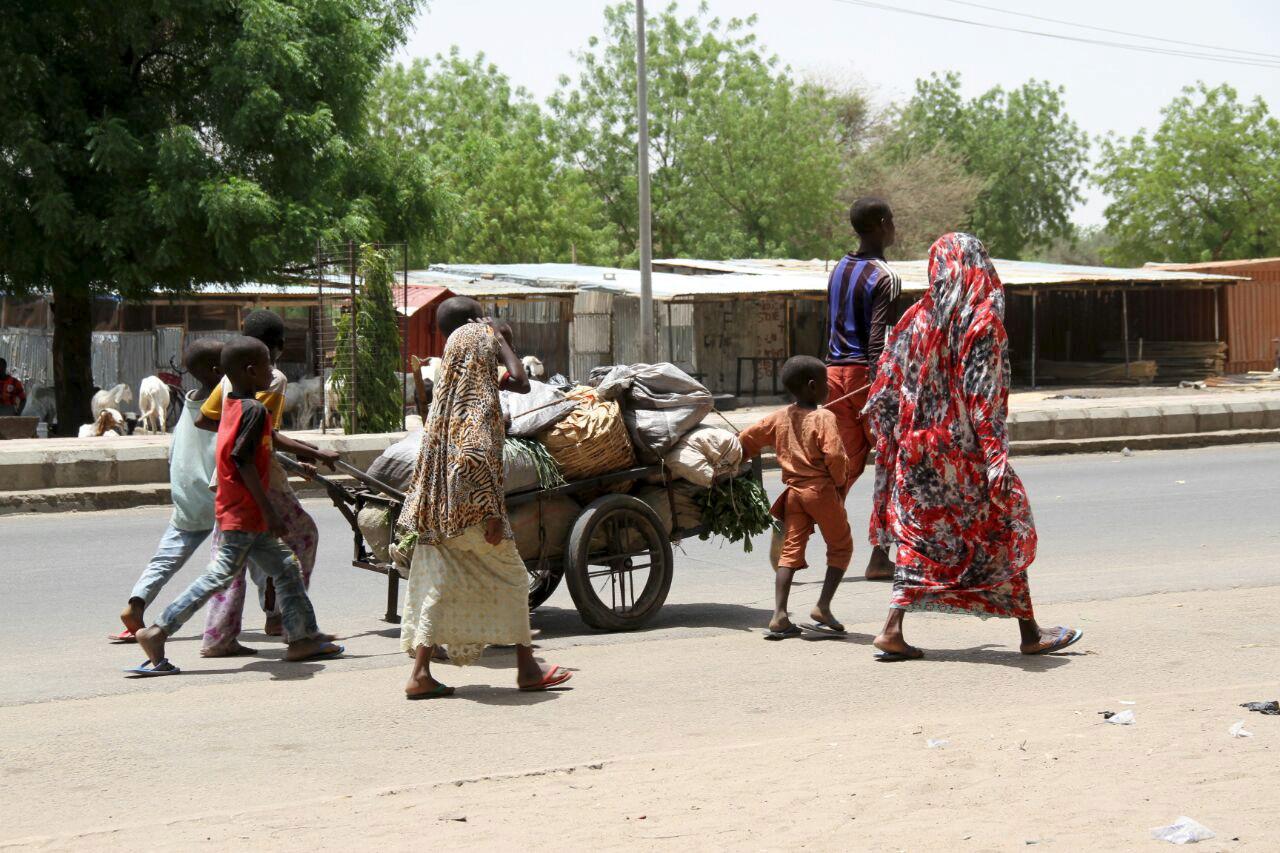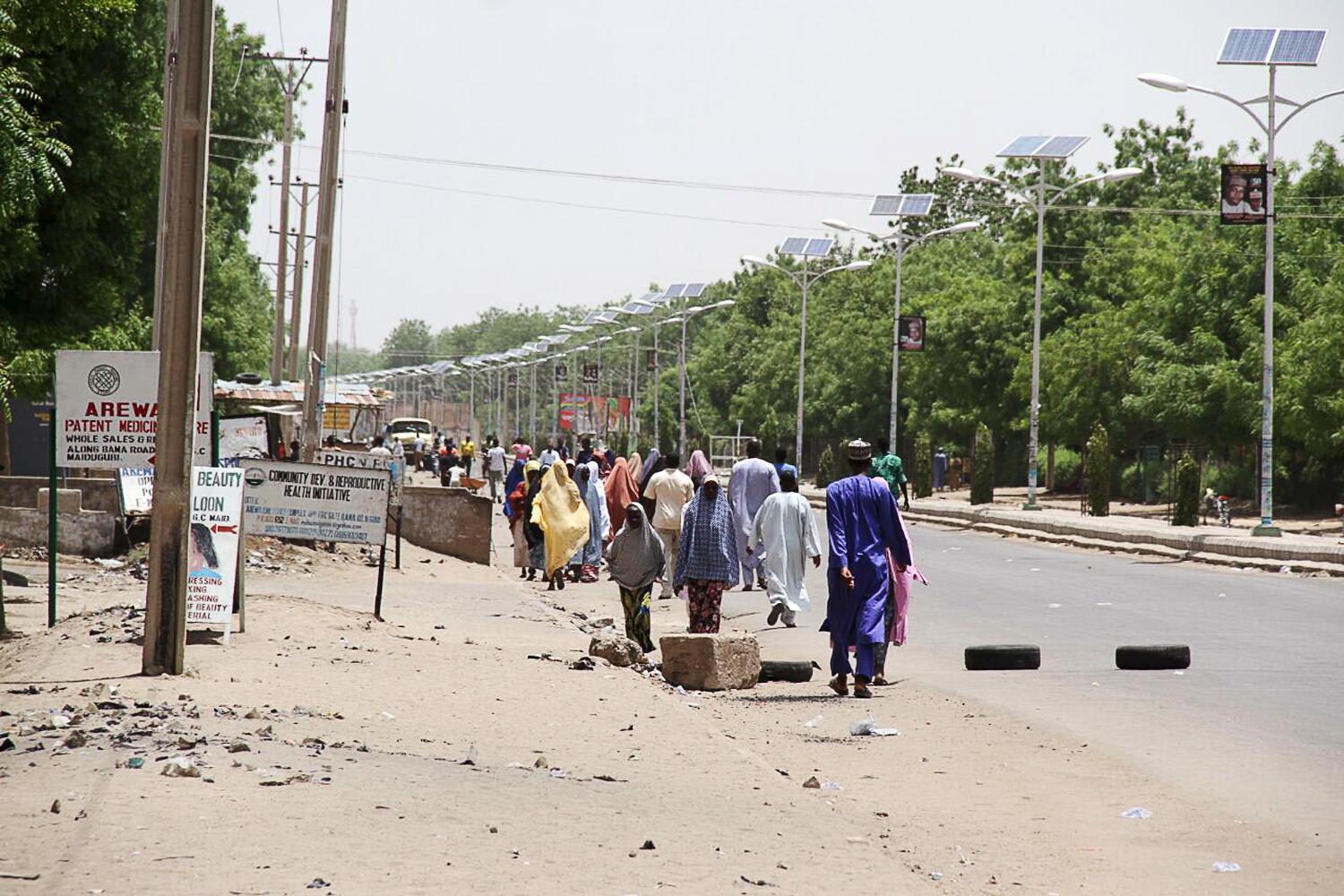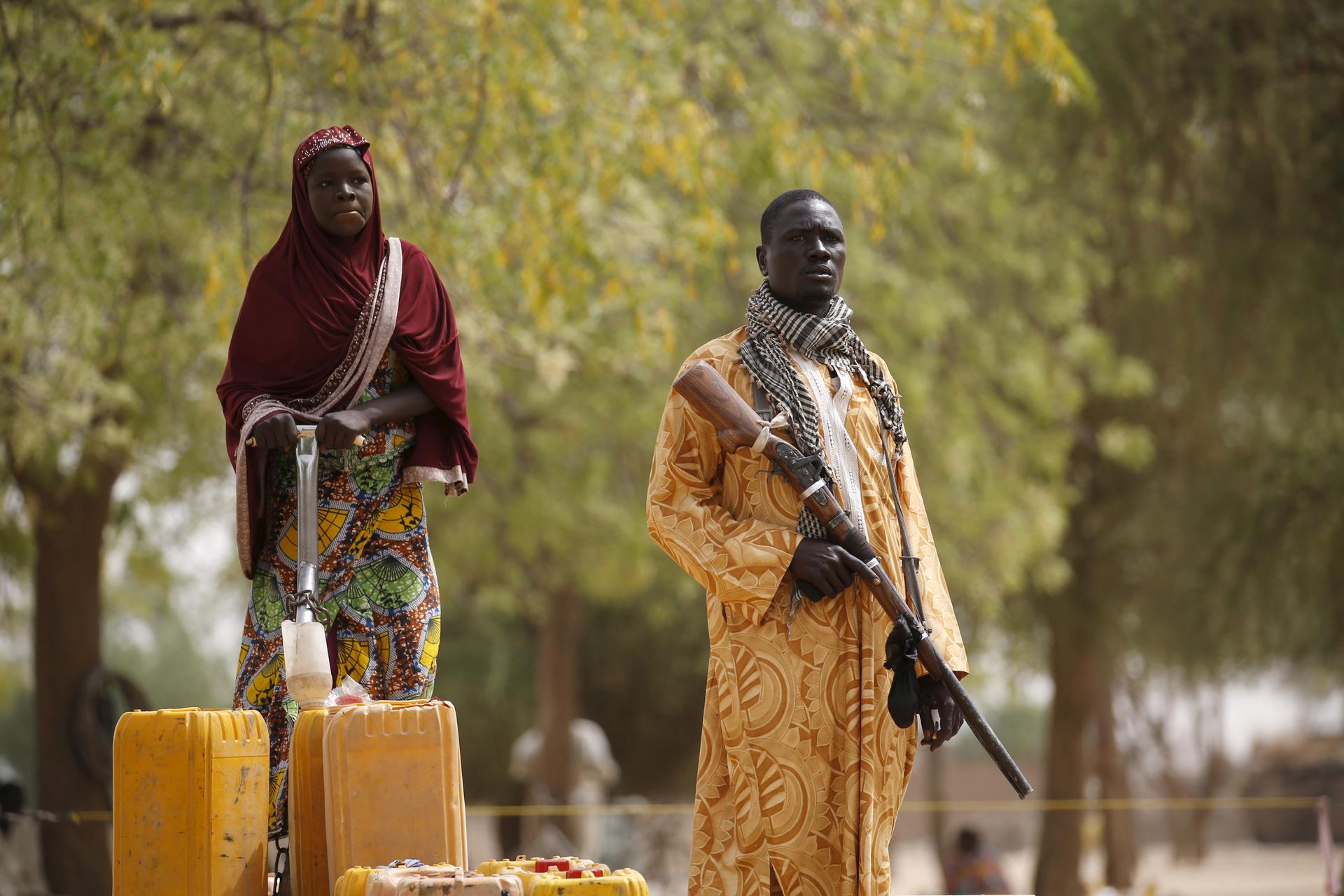‘Starving to death’: Boko Haram displaced them and a food crisis is killing them
A member of a civilian vigilante group holds a hunting rifle while a woman pumps water into jerrycans in Kerawa, Cameroon, March 16, 2016.
At least 10 people are "starving to death" every day in a camp in northeast Nigeria for people displaced by Boko Haram violence, highlighting warnings about a food crisis in the Lake Chad region.
A civilian vigilante and a soldier said the deaths were occurring in the town of Banki where they are based, some 80 miles southeast of the Borno state capital, Maiduguri.
Troops liberated the remote town near the Cameroon border last September.
"People are dying in large numbers in the camp every day from lack of food," the vigilante, who asked not to be identified because of his job assisting the military, told AFP Thursday.
"They are starving to death on a daily basis. Between 10 and 11 people, including men, women and children, die daily since the IDP (internally displaced persons) camp was opened three months ago. As of yesterday (Wednesday) we counted 376 graves in the Bulachira cemetery belonging to dead IDPs who died in the last three months."
The soldier, who has been in Banki since the liberation and also asked to remain anonymous, gave a similar account: "At least 10 people are buried every day in the cemetery. The whole camp is hunger-stricken. People are emaciated and starving to death. If nobody intervenes, a huge catastrophe is looming because these people can't hold out."

The Borno state government and aid agencies have warned about acute food shortages in the Lake Chad region as a result of seven years of violence.
The United Nations said in May that 9.2 million people living around the lake, which forms the border of Nigeria, Chad, Cameroon and Niger, were in desperate need of food.
One Nigerian refugee in a camp in southeastern Niger told AFP last month: "I think that everyone has abandoned us." Another said it had been four months since they last received food aid.
Even at the giant Dalori camp outside Maiduguri, which houses about 20,000 people, IDPs complain there is not enough to eat and children especially are always hungry.
The camp has been locked down since a suicide blast outside in January, forcing residents to rely on twice daily bowls of cooked rice and beans.
"The food ration given to all the occupants of a room is so little that it can be consumed by this boy," Aisha Bala, 35, told AFP last month, pointing to a six-year-old next to her.
"We force ourselves to eat the food despite its bad taste so as not to die from starvation, " added Babagana Mustafa, 46.
Ahmed Satomi, executive secretary of the Borno state emergency management agency, said there were some 10,000 IDPs in Banki and "relief items" were delivered two weeks ago.
But the vigilante disputed the claim, saying the IDPs received nothing from the state and only UNICEF provided them with water containers and sanitary items in April.
Satomi said they were "preparing to procure maize and rice that will last them (the IDPs) for the next 40 days" but said priority was being given to Bama, about 37 miles away.
There were more IDPs in Bama and Maiduguri was its only supply route, whereas "Banki can access supplies from neighboring Amchide in Cameroon," he added.

Boko Haram Islamist insurgency is one of the world's most brutal conflicts: At least 20,000 people have been killed since it began in 2009 and more than 2.6 million others displaced.
Nigeria's government has been encouraging IDPs to return home since the recapture of swathes of territory lost to the Islamist militants in 2014.
But most are still largely reliant on food hand-outs, with farmlands devastated, and homes and local infrastructure destroyed.
Nearly 6,500 children were found to be severely malnourished at camps in Borno state last year. More than 25,000 others had "mild to moderate symptoms," health officials said in February.
The vigilante and the soldier said troops had been giving two-thirds of their rations to the IDPs, who also lacked access to medical facilities and even basic medicine such as paracetamol.
"People have no food, they are just walking corpses," he said by telephone, adding he was watching another funeral procession as he spoke.
Without the soldiers' rations "only a few would have been alive by now," he added.
The soldier called for urgent action, adding: "These people fled their homes to escape death in the hands of Boko Haram terrorists but they are now slowly dying from starvation."
Every day, reporters and producers at The World are hard at work bringing you human-centered news from across the globe. But we can’t do it without you. We need your support to ensure we can continue this work for another year.
Make a gift today, and you’ll help us unlock a matching gift of $67,000!
